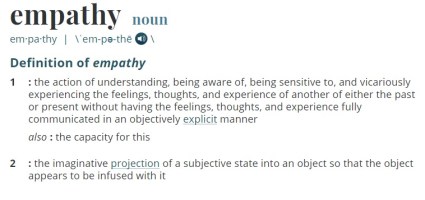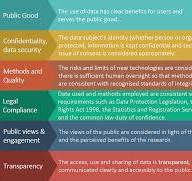The Importance of Ethical Marketing in Today’s Business Landscape
In the fast-paced and competitive world of business, companies are constantly seeking ways to stand out and attract customers. However, in their pursuit of profits, some businesses may resort to unethical practices that can harm both consumers and society as a whole. This is where the concept of ethical marketing comes into play.
What is Ethical Marketing?
Ethical marketing involves promoting products or services in a way that is honest, transparent, and respects the values and rights of consumers. It goes beyond simply following laws and regulations; ethical marketing requires companies to consider the impact of their actions on all stakeholders, including customers, employees, and the wider community.
The Benefits of Ethical Marketing
Embracing ethical marketing practices can have numerous benefits for businesses. Firstly, it helps build trust with consumers. When customers know that a company operates with integrity and cares about more than just profits, they are more likely to develop a sense of loyalty towards that brand.
Additionally, ethical marketing can enhance a company’s reputation and differentiate it from competitors. In today’s socially conscious world, consumers are increasingly looking to support businesses that align with their values. By demonstrating a commitment to ethical practices, companies can attract a loyal customer base and improve their bottom line.
Examples of Ethical Marketing
There are many ways in which companies can engage in ethical marketing. This could include being transparent about product ingredients or sourcing methods, ensuring fair treatment of workers throughout the supply chain, or promoting environmental sustainability initiatives.
For example, a clothing brand may choose to use ethically sourced materials and highlight its efforts to reduce waste in its production processes. By communicating these initiatives to consumers, the brand not only differentiates itself from competitors but also appeals to environmentally conscious shoppers.
In Conclusion
As businesses navigate an increasingly complex marketplace, ethical marketing has become more important than ever. By prioritising honesty, transparency, and social responsibility in their marketing efforts, companies can build stronger relationships with customers, enhance their reputation, and contribute positively to society as a whole.
Seven Essential Tips for Practising Ethical Marketing
- Clearly communicate the benefits of your product or service without exaggeration.
- Be transparent about any potential risks or limitations associated with your offering.
- Respect consumer privacy and handle their data securely and responsibly.
- Avoid using manipulative tactics to influence consumer behaviour.
- Ensure that your marketing messages are truthful and not misleading in any way.
- Support causes or initiatives that align with your brand values genuinely, rather than for mere publicity.
- Listen to feedback from customers and be willing to make changes based on ethical considerations.
Clearly communicate the benefits of your product or service without exaggeration.
In ethical marketing, it is crucial to clearly communicate the benefits of your product or service to consumers without resorting to exaggeration. By providing accurate and transparent information about what your offering can deliver, you build trust with customers and avoid misleading them. Honesty in highlighting the advantages of your product not only helps in establishing a positive brand image but also fosters long-term relationships based on credibility and integrity.
Be transparent about any potential risks or limitations associated with your offering.
When practising ethical marketing, it is crucial to be transparent about any potential risks or limitations associated with your offering. By openly disclosing this information to consumers, you demonstrate integrity and respect for their right to make informed decisions. Transparency builds trust and credibility, fostering a positive relationship with customers based on honesty and accountability. Ultimately, being upfront about the drawbacks of your product or service not only aligns with ethical principles but also helps establish long-term customer loyalty.
Respect consumer privacy and handle their data securely and responsibly.
Respecting consumer privacy and handling their data securely and responsibly is a fundamental aspect of ethical marketing. By safeguarding the personal information of customers and ensuring that it is used only for its intended purpose, businesses demonstrate a commitment to transparency and trustworthiness. Upholding strict data protection measures not only protects individuals’ privacy rights but also helps build long-term relationships based on integrity and respect. Prioritising the security of consumer data is not just a legal obligation but a moral imperative in today’s digital age.
Avoid using manipulative tactics to influence consumer behaviour.
It is crucial in ethical marketing to refrain from employing manipulative tactics aimed at influencing consumer behaviour. Such tactics, which may include deceptive advertising or emotional manipulation, can erode trust between businesses and consumers. By prioritising transparency and honesty in marketing strategies, companies can build genuine connections with their audience based on mutual respect and integrity. This approach not only fosters long-term customer loyalty but also upholds ethical standards that benefit both the business and the wider community.
Ensure that your marketing messages are truthful and not misleading in any way.
It is crucial in ethical marketing to ensure that your marketing messages are always truthful and free from any form of deception or misleading information. By maintaining honesty and transparency in your communications with consumers, you build trust and credibility for your brand. Misleading marketing messages not only harm the reputation of your business but also erode the trust of customers, ultimately leading to negative consequences for both the brand and its relationships with stakeholders.
Support causes or initiatives that align with your brand values genuinely, rather than for mere publicity.
Supporting causes or initiatives that align with your brand values genuinely, rather than for mere publicity, is a cornerstone of ethical marketing. By authentically championing causes that resonate with your brand’s ethos, you demonstrate a commitment to making a positive impact beyond profits. This sincerity not only builds trust with consumers but also creates meaningful connections that can lead to long-term loyalty and support. Prioritising genuine alignment with values over superficial publicity stunts fosters a culture of authenticity and integrity within your brand, ultimately contributing to a more ethical and sustainable business approach.
Listen to feedback from customers and be willing to make changes based on ethical considerations.
Listening to feedback from customers and being open to making changes based on ethical considerations is a crucial aspect of ethical marketing. By actively engaging with customer input and taking their concerns into account, businesses demonstrate a commitment to putting the well-being of their customers first. This approach not only fosters trust and loyalty but also allows companies to adapt their practices in line with ethical standards, ultimately contributing to a more sustainable and responsible business environment.



